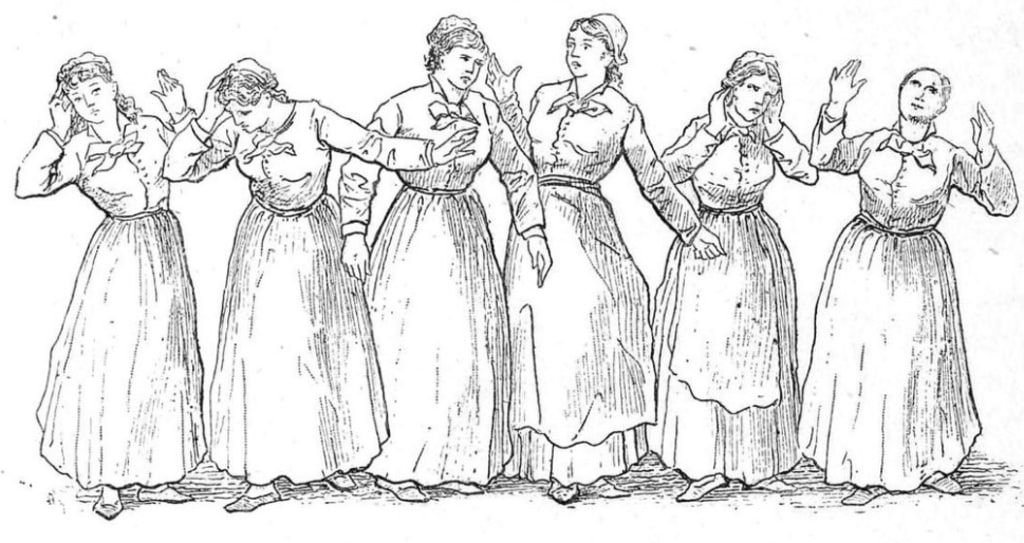Decoding Hysteria
Unveiling the Complexities of Conversion Disorder for Support and Prevention

Hysteria, a complex and multifaceted condition, has had a long and evolving history in the field of psychology. today, we will explore what hysteria is, how it impacts our lives, the symptoms associated with the disorder, the potential challenges for families living with a patient, severe symptoms to be aware of, the duration of symptoms, the role of genetics and environmental factors, diagnosis methods, available medical and psychological treatment plans, expert suggestions for families and patients, and strategies for prevention. By gaining a deeper understanding of hysteria, we can promote empathy, reduce stigma, and enhance support for individuals and families affected by this condition.
Hysteria: An Overview:
Hysteria, also known as conversion disorder, is a psychological condition characterized by the presence of physical symptoms without an identifiable organic cause. It involves the conversion of emotional distress into physical manifestations, leading to various neurological symptoms.
Impact on Daily Life:
Hysteria can have a significant impact on an individual's life, affecting their relationships, social interactions, and overall functioning. The physical symptoms experienced can be distressing and debilitating, leading to impairment in daily activities.
Symptoms of Hysteria:
Symptoms of hysteria can vary widely and may include motor symptoms (such as weakness or paralysis), sensory symptoms (such as loss of sensation or altered perception), and seizures. These symptoms often do not align with recognized medical conditions and may change over time.
Impact on Families:
Living with a family member who has hysteria can be challenging. The unpredictable nature of the symptoms and the resulting disruption in daily life can create stress, confusion, and strain on familial relationships. Family support and understanding play a crucial role in the overall well-being of the affected individual.
Severe Symptoms to Be Aware of:
In some cases, hysteria can manifest in severe symptoms, such as complete loss of motor function or blindness. It is important to seek immediate medical attention if these severe symptoms occur.
Duration of Symptoms:
The duration of hysteria symptoms can vary from person to person. Some individuals may experience acute episodes that resolve relatively quickly, while others may have chronic and persistent symptoms that require long-term management.
Genetic and Environmental Factors:
The exact causes of hysteria are not fully understood, but both genetic and environmental factors are believed to contribute. While no specific genes have been linked to hysteria, certain genetic vulnerabilities may increase the risk. Additionally, environmental factors such as stress, trauma, and cultural influences can play a role in the development and expression of symptoms.
Diagnosis of Hysteria:
Diagnosing hysteria can be challenging, as it requires ruling out other medical conditions that could account for the physical symptoms. A thorough medical evaluation, including physical examinations and diagnostic tests, is necessary to exclude organic causes. Psychological assessments and interviews are also essential to evaluate the underlying psychological factors contributing to the symptoms.
Treatment Approaches:
Medical Interventions:
Medical interventions for hysteria primarily focus on managing the symptoms and addressing any underlying medical conditions. This may involve the use of medications to alleviate anxiety, depression, or pain associated with the condition.
Psychological Interventions:
Psychotherapy, particularly cognitive-behavioral therapy (CBT) and psychodynamic therapy, can be effective in treating hysteria. These therapies aim to explore and address the psychological factors contributing to the symptoms, enhance coping strategies, and promote emotional well-being.
Expert Suggestions for Families and Patients:
Dr. Sarah Thompson, Psychiatrist:
"Families should strive to create a supportive and understanding environment for individuals with hysteria. Open communication, empathy, and patience are key. Educate yourselves about the condition to better understand the challenges and provide appropriate support."
Dr. Michael Rodriguez, Neurologist:
"Collaboration between mental health professionals and neurologists is essential in the diagnosis and treatment of hysteria. A comprehensive approach that addresses both the psychological and neurological aspects can lead to better outcomes."
Dr. Emily Johnson, Family Therapist:
"Family therapy can be beneficial for both the patient and their family members. It provides a safe space to discuss emotions, improve communication, and develop strategies for managing the impact of hysteria on family dynamics."
Prevention Strategies:
While it may not be possible to prevent hysteria entirely, certain strategies can help reduce its occurrence and severity:
Early Intervention and Mental Health Support:
Providing early intervention and mental health support for individuals experiencing stress, trauma, or emotional difficulties may help prevent the development of conversion symptoms associated with hysteria.
Stress Management and Coping Skills:
Promoting healthy stress management techniques and teaching effective coping skills can help individuals better manage emotional distress, reducing the likelihood of converting it into physical symptoms.
Psychoeducation and Awareness:
Raising awareness about hysteria, reducing stigma, and providing psychoeducation to healthcare providers, families, and the general public can facilitate early recognition, accurate diagnosis, and timely intervention.
Conclusion:
Hysteria, or conversion disorder, is a complex condition characterized by physical symptoms without an identifiable organic cause. It significantly impacts individuals and their families, affecting various aspects of their lives. Understanding the symptoms, potential causes, diagnosis process, and available treatment options is crucial in providing support and promoting mental well-being.
While the exact causes of hysteria remain unclear, a combination of genetic vulnerabilities and environmental factors is thought to contribute to its development. Diagnosing hysteria requires careful evaluation to exclude organic causes and identify the underlying psychological factors. Treatment approaches encompass both medical interventions to manage symptoms and psychological interventions to address the psychological aspects of the condition.
By fostering empathy, providing support, and promoting awareness and prevention strategies, we can strive to reduce the impact of hysteria on individuals, families, and society as a whole. With a multidisciplinary approach and collaborative efforts, we can work towards enhancing the quality of life for those affected by hysteria while advancing our understanding of this complex condition.
About the Creator
Shams Ul Qammar
I'm a psyche student who loves raising awareness about mental health. Together we can delve into the world of mental health issues. My responses will be based on my studies. Let's embark on this journey of exploration together!






Comments
There are no comments for this story
Be the first to respond and start the conversation.